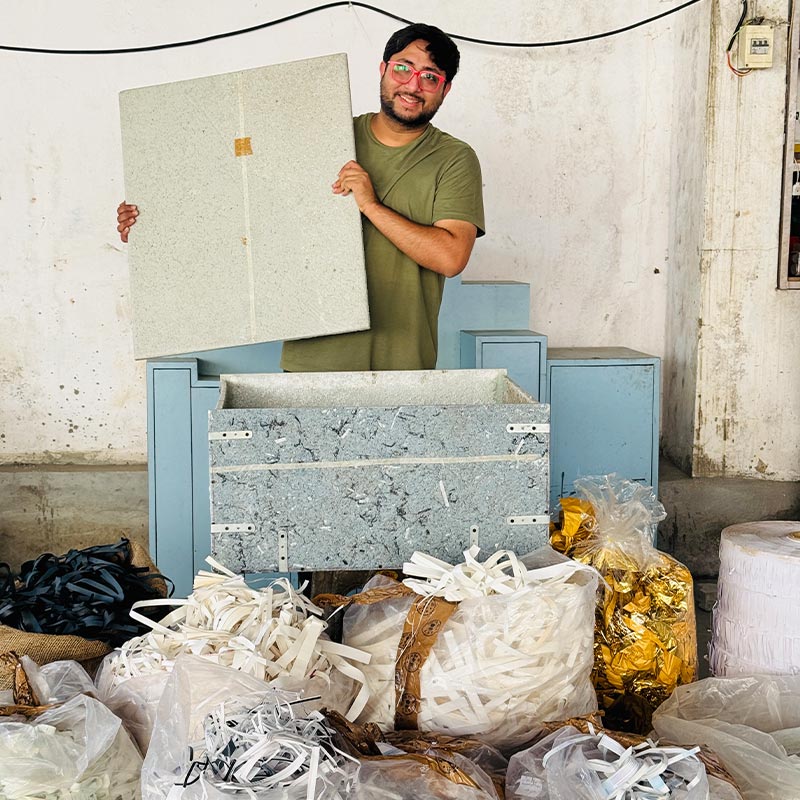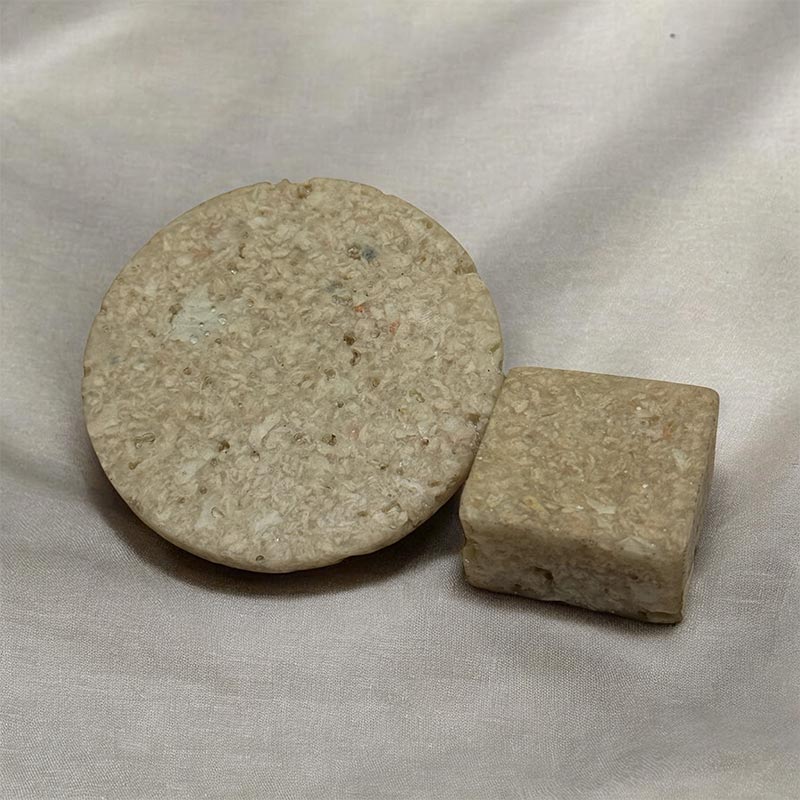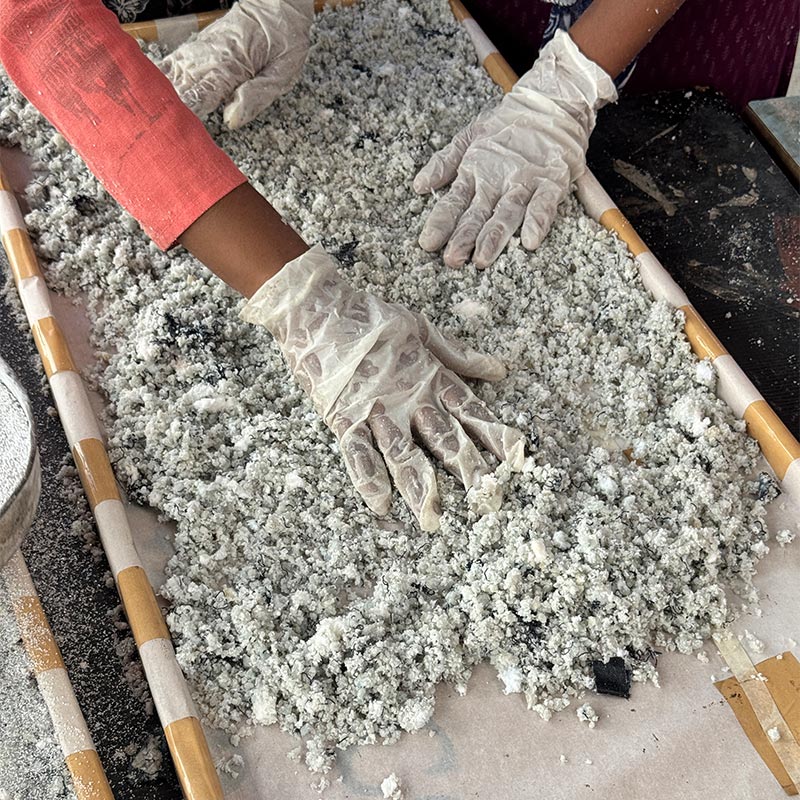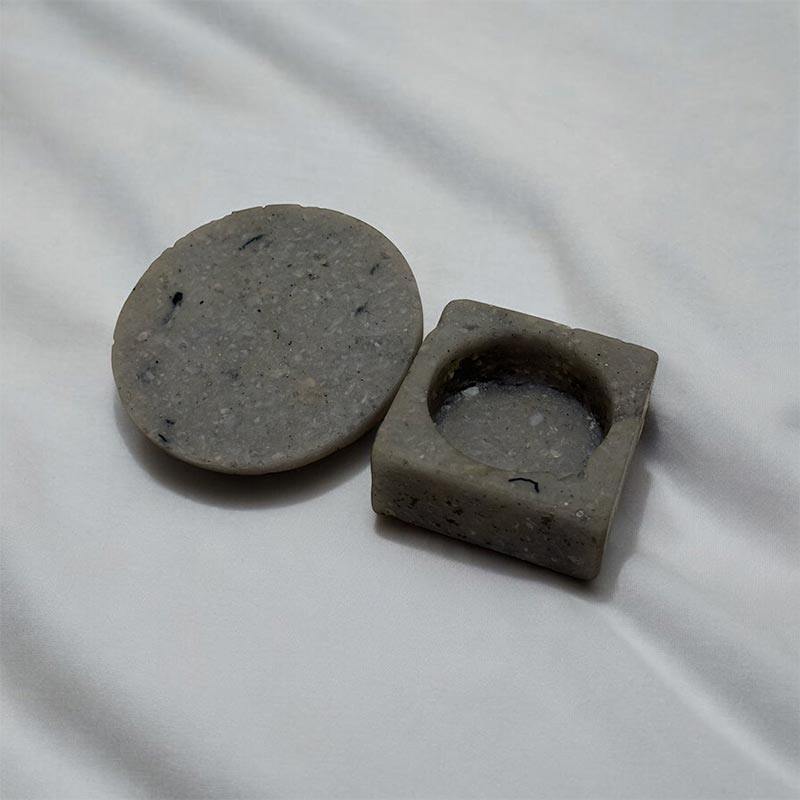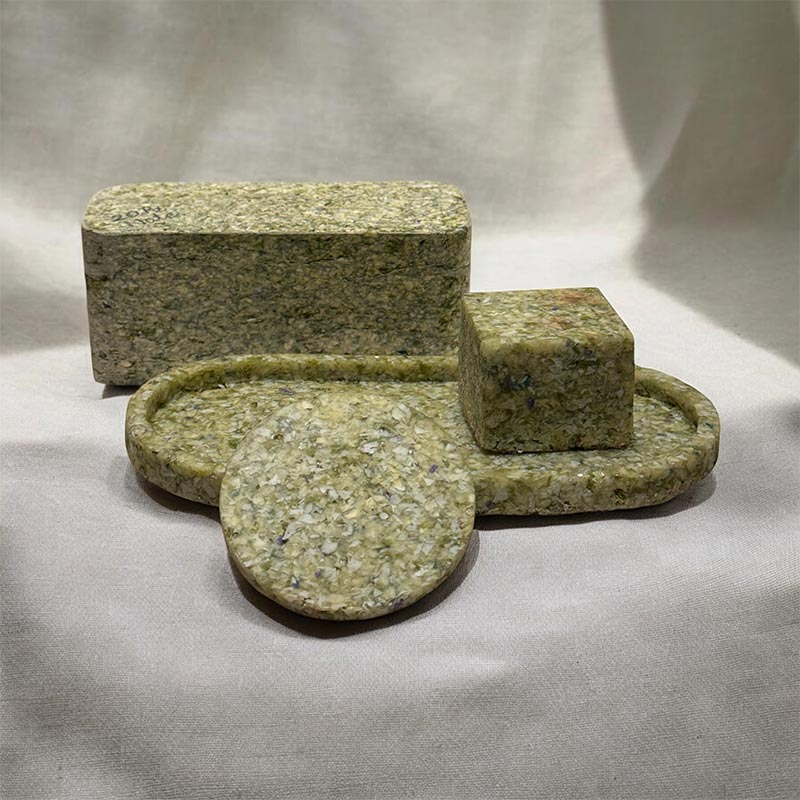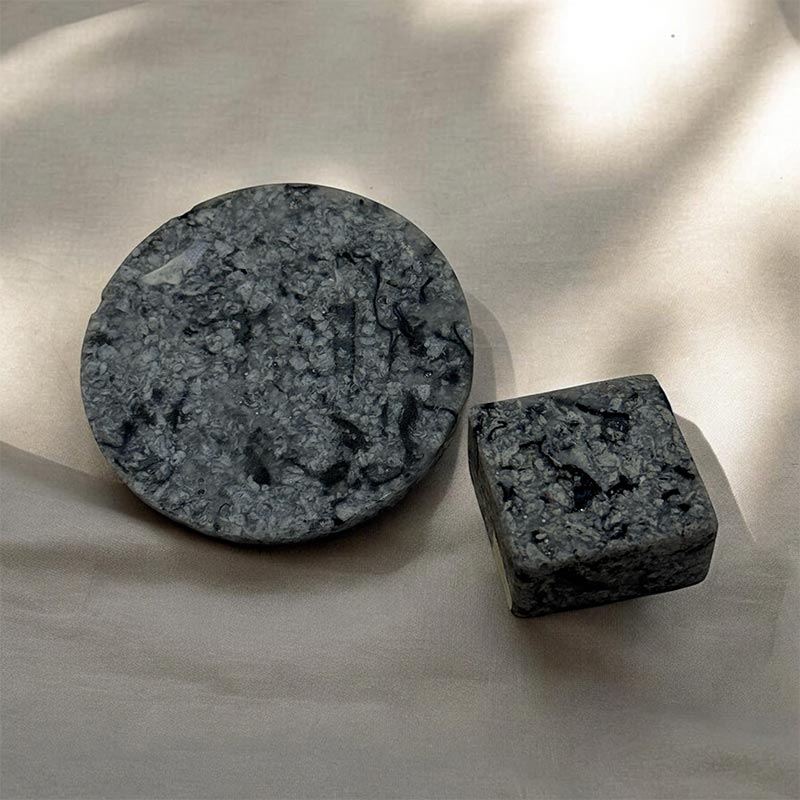Reusing the Misprinted Currency Notes
Problem
The Securities Printing and Minting Corporation of India Limited (SPMCIL) is a pivotal organisation engaged in the production of banknotes, security papers, judicial stamp papers, postal stamps andstationery,travel documents such as passports and visas, security certificates, cheques, and currency. In the course of its operations, a significant amount of non-security waste, over 400 tonnes annually (source: SPMCIL Nasik) at a single unit is generated. This waste comprises a variety of materials, including cotton, glue, plastics, non tearable papers, gold foils, and textiles. Currently, this waste is discarded into the landfill within the corporation’s premises, contributing to environmental degradation and inefficient resource utilisation.
Solution
Recognising the potential of this waste as a resource, We have developed a breakthrough process that transforms classified and sensitive waste into high-performance artificial wood with diverse applications. Proudly Made in India and first of its kind globally, this innovation ensures secure, non-recoverable disposal; eliminating risks of misuse, counterfeiting, or data leakage; while creating a sustainable alternative to particle board and plywood, free from tree-based raw materials.
Tested under IS 1659:2004 standards, the material has demonstrated exceptional performance, with superior resistance to water absorption, enhanced strength, and excellent stiffness and durability. It further stands out as energy-efficient, fire-retardant, and termite-resistant, making it a reliable and sustainable alternative to conventional wood-based materials.
With a patented composition and a patent-pending process, this technology delivers both a secure disposal solution and a value-added, future-ready material advantage.
Impact
The impact of this solution is multifold. Environmentally, it helps convert a post production speciality waste into an eco-friendly, recyclable material that supports circular economy principles and diverts the waste from entering the landfills. Economically, it offers costeffective scalability, reducing reliance on conventional wood-based products while delivering superior durability and performance. Socially, it also enables a CSR-aligned model where the production process can empower prisoners by providing them meaningful work, thereby aligning with corporate responsibility objectives of presses and institutions handling such speciality waste.
Currently we are in the process of trials of various use cases of the material.

